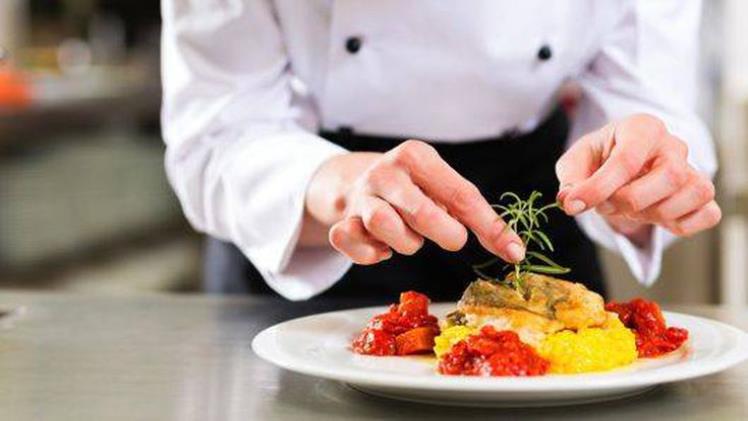It’s not like every cooking school graduate aspires to work in hospitality. While working in a kitchen is unquestionably an excellent career choice, it is not for everyone.
So, what can a culinary degree from Melbourne Cooking School get you? Here are a few ideas to get after taking a cooking course.
Hospitality chef
After taking Melbourne Cooking School, one of the most popular careers in the so-called hospitality chef, they are frequently employed by hotels, resorts, and cruise ships.
Hospitality chefs often manage kitchen staff, conducting orders and assisting in meal preparation. They can prepare various dishes that cater to different pallets.
However, you don’t want to be an executive chef right ahead? You can start your culinary career as a Sous chef, line cook, or pastry chef.
Everyone in the organization is significant and contributes to the success of a business. Any of these jobs is beneficial to your success. Being a team member and doing what you enjoy is a passion, not a task.
Private chef
The private chef is a growing sector of the culinary arts. A personal chef often serves one significant customer, living and working at the client’s house.
They are in charge of all meal preparation and must be available for snacks and special occasions. Travelling with clients for vacation or business may be necessary after passing Melbourne Cooking School.
Personal chef
A personal chef handles numerous customers, frequently cooking food in advance in the clients’ residences for them to reheat throughout the week. As a result, personal chefs manage their own business and must be capable of handling culinary planning and preparation and the business side of things.
Caterers vary differently from personal chefs in that they prepare vast quantities of food for significant events. Some may prepare meals on-site, while others must prepare food and carry it to the venue.
Caterers confront several obstacles, including keeping the food at the proper temperature and ensuring it is aesthetically acceptable.
Restaurant manager
The restaurant manager oversees the floor. Head chefs are in charge of kitchen duties, including managing the waiting employees and engaging directly with clients.
A restaurant manager must have strong communication skills and time management abilities. Also, they should be physically strong enough to spend long periods on their feet, flitting from workers to customers to interacting with the kitchen. Melbourne Cooking School can assist you in becoming a restaurant manager.
Quality assurance specialist
Managers of quality assurance verify that food products fulfil the necessary security requirements. As a result, they must be well-versed in food ingredients, cleanliness, food preparation, safety protocols, and regulatory laws.
They may also attend to client complaints and supervise a staff of food inspectors. Therefore excellent management skills are required.
Pastry chef
Do you consider yourself a baker, or do you like baking? Being a pastry chef might be a fantastic career choice if this is the case. Pastry chefs operate in a range of settings, specializing in sweets such as cakes and pastries.
Pastry chefs can work in various settings, including hotels, hospitals, and even home bakeries. If you want to pursue a profession that is as delicious as it sounds, a culinary arts degree may be precisely everything you need to realize your pastry chef’s aspirations.
Research chef
A research chef is someone who blends cooking with food science research. To develop novel culinary processes for food and beverage products, research chefs combine the art and science of cooking.
Chefs in research may concentrate on novel culinary processes, food preservation methods, or flavours.
An excellent scientific foundation and a culinary arts education learned in Melbourne Cooking School are required for a job in the culinary research industry.
Beverage professionals
Professionals in the beverage industry may work as a sommelier, winemaker, brewer, barista, or in a service version of these jobs, including a coffee shop.
Beverage professionals may work as sommeliers or baristas, or they may work on the manufacturing side of the business, like making wine and producing beers.
While the beverage of choice varies, beverage experts are interested in history and flavour, a robust palate, and mastery of abilities in hospitality and culinary.
You can learn barista skills and knowledge and eventually feel secure enough to create your coffee shop. Still, your new café will do better if you have a good business experience or the funds to recruit a business-savvy partner.
Similarly, you may start creating wine by working with a practising winemaker, but understanding the cultivating sciences can help you understand the theory behind the practice much faster.
Nutritionist
Nutritionists combine a love of food with a love of health, assisting individuals in understanding how to eat correctly.
You might give nutritional guidance to those with chronic disorders like diabetes, motivate people to lose weight, promote healthy lifestyles, or run a nutrition clinic. Melbourne Cooking School can teach you nutritional guidance to assist you in becoming a nutritionist.

